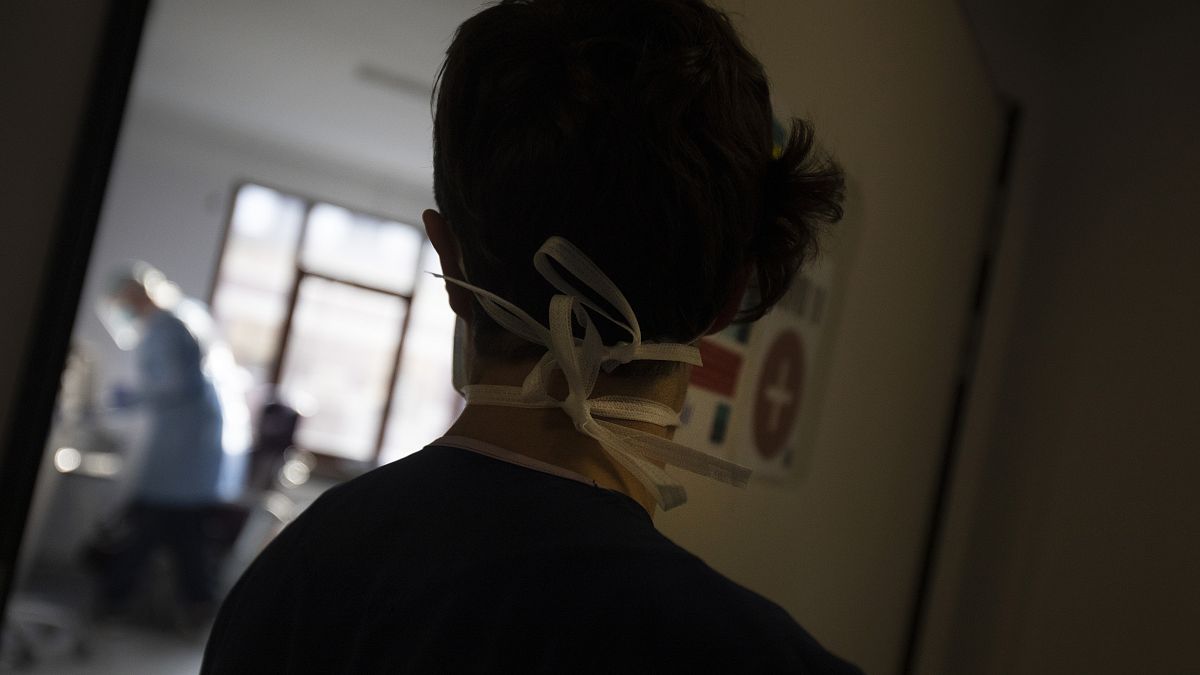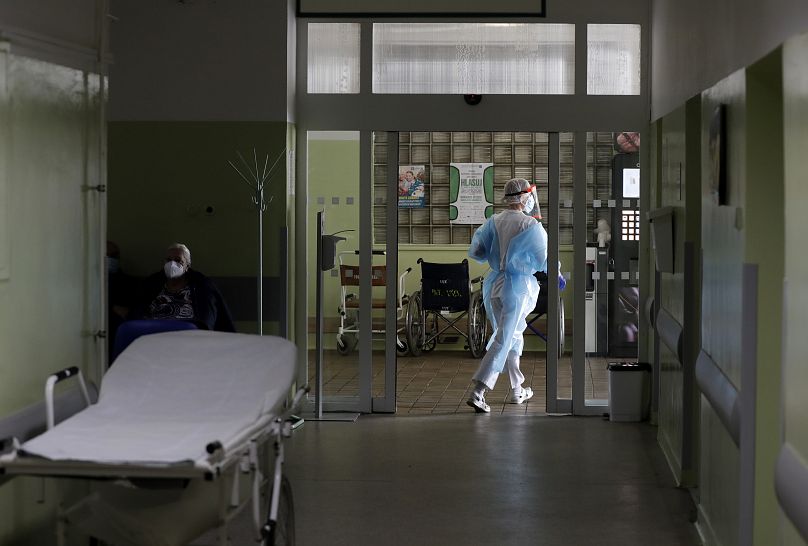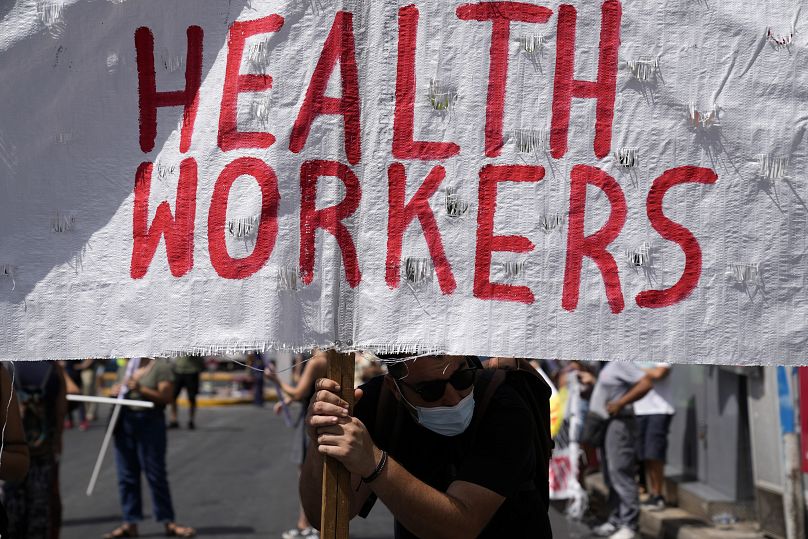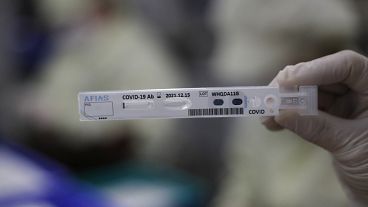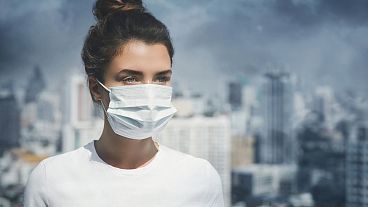Many doctors and health workers are sexually harassed by patients, but they often don’t report the incidents or know how to protect themselves.
Workplace aggression is a well-known problem in health care, with doctors, nurses, and other medical staff frequently facing violence and verbal abuse from their patients.
But a specific form of abuse often flies under the radar: just how many health workers are subjected to sexual harassment, which can range from one-time comments in the hallways of a hospital to repeated altercations with a patient in the exam room.
Looking at physicians alone, that share may be up to 45 per cent, according to a major study published recently in the Internal Medicine Journal.
The analysis of studies from seven countries – the United Kingdom, Canada, Australia, the United States, Israel, Germany, and Malaysia – is the first large-scale review on the issue, and included a pooled 18,800 doctors from a range of specialties.
'Unique occupational hazard'
It reveals that even as public calls to curb violence against healthcare workers multiply, sexual harassment remains a pervasive problem in medicine – one with little recourse.
Sexual harassment "is a unique occupational health hazard, and the reason for that is that people do have intimate contact with patients because they need to physically examine them," Caroline Kamau-Mitchell, the study’s lead author and an occupational health researcher at Birkbeck, University of London, told Euronews Health.
"That conflation by some patients of the intimacy setting, where perhaps they have to undress or they have to discuss very intimate information about themselves, does unfortunately mean that health care workers are more at risk" than people in other professions.
The latest figures are far above the World Health Organization (WHO)'s 2019 estimate that 12.4 per cent of all health workers have been sexually harassed.
Kamau-Mitchell said that’s because some types of health professionals have more contact with patients than others, which can make it misleading to combine groups, and because her analysis is more up-to-date, capturing a marked increase in harassment in recent years.
Which health professionals are at risk?
Doctors working in emergency rooms or psychiatric units appear to be at higher risk of abuse because they are in high-stress settings and could have patients who don’t know what they’re doing, Kamau-Mitchell said.
But general practitioners are also subject to harassment because they see the same patients repeatedly over time, often with fewer people around compared with a hospital or emergency setting, according to Dr Tiago Villanueva, president of the European Union of General Practitioners/Family Physicians (UEMO).
"We develop relationships with continuity with our patients," Villanueva, who was not involved with the study, told Euronews Health. "Some patients may abuse that trust".
There’s also a gender divide, with 52 per cent of women experiencing sexual harassment compared with 34 per cent of men, according to the analysis.
"From the male patient to the female doctor, it’s, quote, traditional sexism, or being against the idea of a female doctor," Kamau-Mitchell said.
"But from the female patient to the male doctor, it's a different type of sexism, of thinking that somehow males should tolerate this kind of behaviour, which is ridiculous".
While most countries don’t report official statistics on sexual harassment of health care workers, some of the most comprehensive data comes from the UK.
Rape, harassment, stalking and abuse
In a 2021 survey of about 1,800 UK doctors, 31.8 per cent said they had received unwanted, gender-related comments that caused "embarrassment, distress, or offence" within the past two years.
Meanwhile, between 2017 and 2022, National Health Service (NHS) workers reported nearly 21,000 cases of rape, sexual assault, harassment, stalking, and abusive comments by patients, though few units had processes in place to combat these problems, according to an investigation published last year.
Those figures underscore that sexual harassment is just the tip of the iceberg when it comes to aggression from patients. They also show that doctors aren’t the only health workers at risk – nurses, trainees, and other staffers all face unwanted attention and threats.
For example, Umut Can Öztürk, a medical student in Turkey and a leader in the European Medical Students’ Association (EMSA), told Euronews Health that his female colleagues try to dress conservatively to avoid being leered at by patients.
Paul de Raeve, a longtime nurse and secretary general of the European Federation of Nursing Associations, said he typically tried to get someone else in the room if he felt patients were making suggestive comments.
He said aggression toward nurses – including sexual harassment, physical and verbal attacks – has only escalated in recent years, with a profound effect on health workers’ satisfaction at work.
"COVID-19 has aggravated this situation," de Raeve told Euronews Health. "We are going to lose our nurses… because they said, ‘enough is enough".
The issue also remains heavily stigmatised, and many health care workers don’t report these incidents because they don’t believe anything will be done to remedy the situation, de Raeve, Villanueva, and Kamau-Mitchell all said.
"If you're a busy doctor and you're subject to this, and you're under such pressure that you don't even have time to report it or think much about it, you just trod on," Villanueva said.
"But that ultimately affects your mental health and makes you more prone to things like anxiety or depression".
What can be done about harassment?
While some countries, such as Spain and the Czech Republic, have national registries to monitor violence against healthcare workers, sexual harassment often falls into a grey area.
"There's no day that we don't have a patient yelling or screaming or sometimes hitting health care professionals," Villanueva said. "But sexual harassment is something much more subtle".
Medical groups across Europe are pushing for a more comprehensive accounting of these incidents.
They plan to circulate a standardised questionnaire among physicians, medical students, and other health workers that asks about physical and verbal abuse, including sexual harassment.
Regardless of the data, Villanueva said that health systems should make it easier to expel people from a physician’s patient list, so they don’t have to see someone who has harassed them again.
Kamau-Mitchell wants hospitals to install panic alarms that allow staff to quickly call for help, and for doctors to be able to wear body cameras that record patient interactions – an option the UK’s ambulance crews already have – though she acknowledges that patient privacy and data storage would be challenges.
Medical students told Euronews Health that training on how to handle sexual harassment, including where to report it, is currently missing from school curricula.
They’d like to see it prioritised more, but said their own instructors may first need to be trained.
"Although we are told about how to recognise harassment or violence cases, we are not specifically told about how to act when we face violence as doctors in positions in hospitals or in clinics," Duygu İleri, a medical student in Turkey and EMSA’s ethics and human rights lead, told Euronews Health.
Ultimately, the experts said it will likely take a combination of government, health system, and social changes to protect doctors and other medical personnel against sexual harassment and other forms of aggression.
Doctors "know these problems exist," Kamau-Mitchell said, but "unfortunately, they don't have the power to change these sorts of things".
"We need to realise that we can't just leave people to deal with problems on their own, because they, unfortunately, then become very psychologically burdened, and that isn't great for us as a society".












